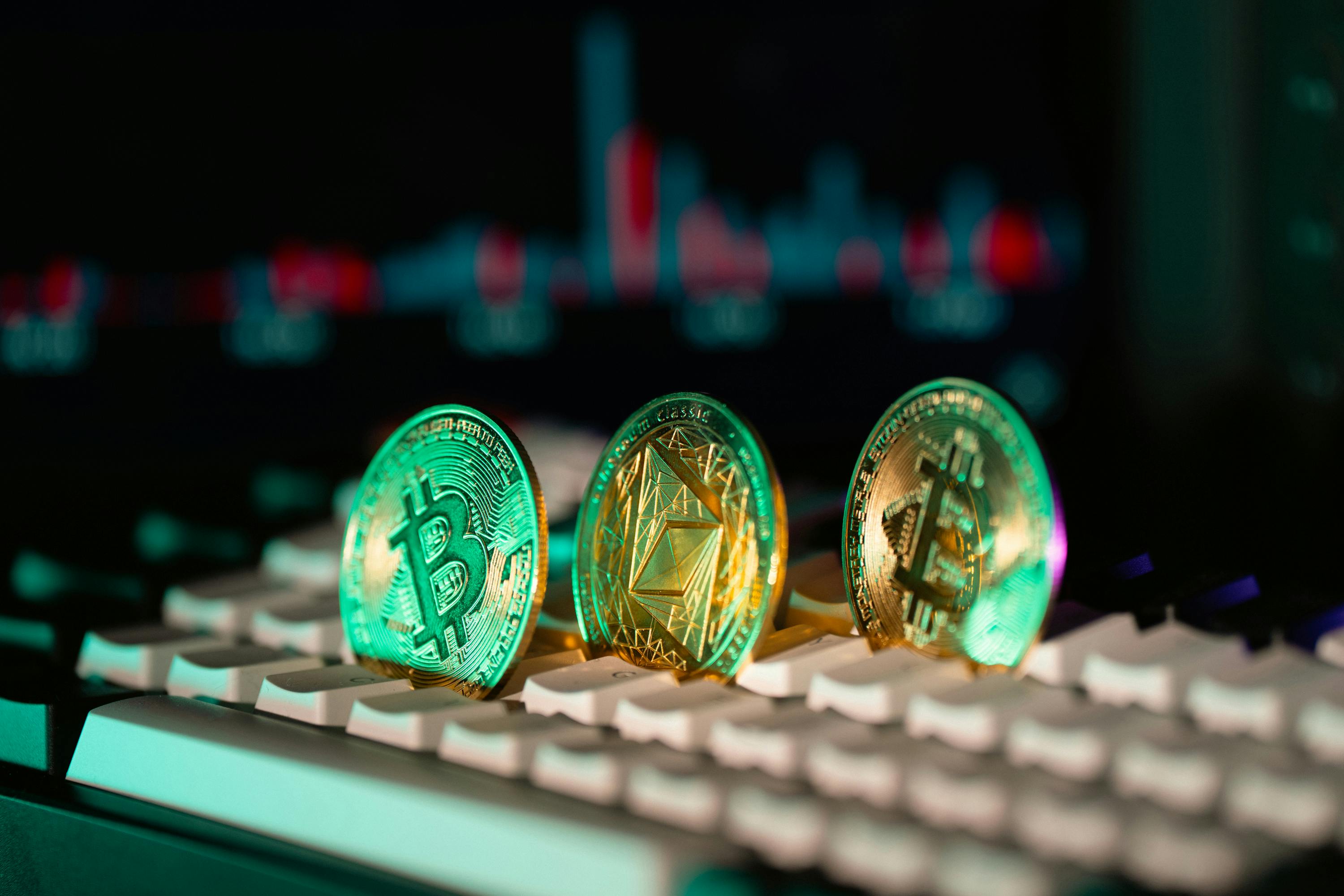What is Bitcoin: A Guide to Buying, Mining, and Utilizing It
What Is Bitcoin, Really?
Bitcoin is a type of digital money you can send over the internet. You might hear it called a cryptocurrency. But unlike euros or dollars, Bitcoin doesn't come in the form of coins or paper. It only exists online.
Bitcoin was invented in 2008 by someone (or a group) using the name Satoshi Nakamoto. It was created as a new kind of money—one that doesn’t rely on banks or governments to operate. Instead, it runs on a technology called blockchain, which is basically a secure digital notebook that records every Bitcoin transaction.
The system is "decentralized," which means no single company, person, or government controls it. Only 21 million bitcoins will ever exist, and they’re split into smaller units called satoshis (like cents to a euro).
In short: Bitcoin is a way to move value online—securely, without middlemen. It is the first decentralized cryptocurrency.

How Does Bitcoin Work?
Let’s break it down. Bitcoin works using blockchain technology. Think of the blockchain as a huge public notebook where every Bitcoin transaction is written down for everyone to see. Once a transaction is added, it can’t be changed or deleted.
But who writes in this notebook? That’s where Bitcoin miners come in. Miners use powerful computers to verify new Bitcoin transactions. When they do, they add them to the Bitcoin blockchain and are rewarded with new bitcoins. This process is called mining.
Interesting fact: One bitcoin is divisible into 100 million smaller units known as satoshis.
About Bitcoin mining
Mining means solving complex math problems with high-powered computers. When a miner solves one of these problems, they get to add a new block of transactions to the blockchain - and they earn a reward in Bitcoin.
Mining is essential to keeping the bitcoin network alive and validating transactions. But it requires a lot of computing power, which means high energy use and specialized machines. Over time, the reward for mining is cut in half every four years (this is called the "halving"), making Bitcoin more scarce.
- Transactions are peer-to-peer (person to person), so there's no need for a central bank.
- The bitcoin blockchain is kept running by a bitcoin network of computers around the world, not a single company.
- Bitcoin rewards are halved every 210,000 blocks.
That’s how Bitcoin stays secure without anyone in charge.

Why Do People Care About Bitcoin?
People care about Bitcoin for different reasons:
- Freedom and control: You control your money completely. No bank can freeze your account.
- Inflation hedge: Bitcoin is limited to 21 million coins. Unlike regular money, it can’t be printed endlessly.
- Global payments: You can send Bitcoin to anyone in the world, anytime, without needing a bank.
- Investment: Some people believe Bitcoin will become more valuable over time, like gold.
- Big players joining: Companies like Tesla and PayPal have shown interest in Bitcoin. Some countries are even experimenting with making it legal tender.
That said, Bitcoin isn’t without risks—but more on that below.
How to buy Bitcoin and how to sell Bitcoin
Buying Bitcoin today is easier than ever. Here’s how most people do it:
- Crypto exchanges: You can buy Bitcoin on platforms like Bitvavo, Binance, or Kraken. You sign up, connect your bank, and make a purchase.
- Market price: Bitcoin’s price changes constantly—sometimes very quickly. It’s based on supply and demand.
- Storing your Bitcoin: After buying, you keep your Bitcoin in a digital wallet. Some wallets are online (easy to use), and some are offline (safer).
- Selling Bitcoin: You can sell your Bitcoin on the same exchange you bought it from, usually in a few clicks.
Some people also trade Bitcoin for other cryptocurrencies.

Is Bitcoin Safe to Use?
Bitcoin is secure by design—but only if you use it correctly.
- You must protect your wallet: If someone gets your private key (your secret code), they can take your Bitcoin. There’s no “forgot password” button.
- Phishing and scams: Some websites pretend to be real exchanges or wallets. Double-check URLs and never share your private key.
- Trusted tools: Use well-known wallets and platforms. Avoid anything that seems shady or makes big promises.
- No chargebacks: If you send Bitcoin to the wrong address, it’s gone. Always double-check.
The tech is strong—but it’s up to you to stay safe.
How Do You Get Bitcoin, the World's First Digital Currency?
Bitcoin isn’t something you can just pick up at the store. But getting it is more accessible than ever before. Here's how:
- Buy Bitcoin through a crypto exchange: Platforms like Bitvavo, Binance, or Kraken let you create an account, verify your identity, and purchase Bitcoin using euros or other currencies.
- Use a Bitcoin ATM: These machines are located in cities around the world and let you deposit cash in exchange for Bitcoin. However, fees can be high.
- Earn Bitcoin: Some freelance jobs, online platforms, or tipping systems pay in Bitcoin. You can also offer Bitcoin payments as a business owner.
- Trade other digital currencies: If you own Ethereum or another crypto, you can exchange it for Bitcoin on most major platforms.
- Start small: It’s smart to begin with small amounts while you learn how wallets, exchanges, and Bitcoin transactions work.

Can You Use Bitcoin in Daily Life?
Yes – but it depends on where you are and who you're buying from. Here's how people use Bitcoin in the real world:
- Online shopping: Some websites let you pay with Bitcoin directly or through services like BitPay.
- Travel: Airlines, booking sites, and hotels increasingly accept Bitcoin.
- Tipping and donations: Creators, streamers, and nonprofits often accept Bitcoin as support.
- Everyday purchases: In some cafés and shops (especially in crypto-friendly areas), you can pay with Bitcoin.
- Legal tender in some countries: El Salvador made Bitcoin official currency in 2021.
- But it’s not everywhere yet: Fees can be high during network congestion, and Bitcoin transactions take time compared to card payments.
Common Questions About Bitcoin (Answered Simply)
Still got questions? You're not alone. Here are simple answers to some of the most common ones:
Is Bitcoin anonymous?
Not quite. Your name isn’t public, but all transactions are visible. It's more like a pseudonym.
How many Bitcoins are there?
Only 21 million can ever exist. That scarcity is part of what gives Bitcoin its value.
Who is Satoshi nakamoto?
Satoshi Nakamoto is the name used by the mysterious creator of Bitcoin. No one knows who they are—it could be one person or a group. In 2008, they published the original whitepaper outlining how Bitcoin would work. In 2009, they launched the software.
Satoshi stayed active for a couple of years, then disappeared around 2011. Their identity remains unknown, and their Bitcoin wallet (with over 1 million coins) has never been touched.
Who controls Bitcoin?
No single company or person. It runs on a decentralized bitcoin network, maintained by users.
Will Bitcoin prices will always go up in value?
No one knows. Its price moves based on supply, demand, news, and adoption.
Can Bitcoin be hacked?
The network itself hasn’t been hacked, but exchanges, wallets, and users have been. Use good security habits.

What Should You Know Before Getting Involved?
Before diving in, take a moment to understand the risks and learn how to protect yourself:
- Do your own research: Don't rely only on TikTok or friends. Take time to learn how digital currency works.
- Be aware of scams: If it sounds too good to be true, it probably is. Fake giveaways, phishing emails, and sketchy apps are common.
- Use secure wallets: Store your Bitcoin in a wallet you control, not just on an exchange. Hardware wallets are a good option.
- Don’t invest money you can’t afford to lose: Bitcoin is still very volatile.
- Explore automated tools carefully: Tools like Diamond Pigs bots can help manage trades, but always understand what you’re using.
Bitcoin's Environmental Impact
Bitcoin has gotten a lot of criticism for its environmental footprint. Here's the context:
- Bitcoin mining uses a lot of energy: Especially in countries where miners use fossil fuels. The annual energy consumption of the Bitcoin system is roughly equal to the country of Thailand.
- It’s not just electricity – it’s e-waste too: Old mining equipment becomes obsolete quickly.
- Some mining operations use renewable energy: In Iceland, Canada, and even some U.S. states.
- There’s growing pressure for cleaner mining: Both from within the Bitcoin community and governments.
- Newer technologies may change the game: Some alternatives to Bitcoin use less energy (like proof-of-stake models).
Bitcoin's Social Impact
Beyond tech and finance, Bitcoin affects people and society in different ways:
- Financial inclusion: People in unstable economies or without access to banks can use Bitcoin as an alternative.
- Empowering individuals: No need to rely on central banks or governments.
- Support for activism: Some groups use Bitcoin to fundraise when traditional options are blocked.
- Wealth inequality risks: Early adopters or wealthy investors may benefit more than newcomers.
- Legal gray zones: Bitcoin use can clash with local regulations, depending on the country.

Regulating Bitcoin
Bitcoin was designed to be independent of governments and banks—but that doesn’t mean it operates outside the law.
- Laws vary by country: Some nations embrace Bitcoin, others ban it. Most are somewhere in between, setting rules around taxes, licenses, or trading.
- Governments focus on exchanges: Since Bitcoin itself can't be shut down, most regulation happens at the exchange level (where you buy and sell).
- Anti-money laundering rules: Exchanges are often required to verify users' identities to prevent illegal activity.
- Tax implications: In many countries, profits from Bitcoin are taxable. How it’s classified (as currency, property, etc.) affects how it’s taxed.
- Evolving landscape: As digital currencies grow, regulation is becoming more defined—but it still changes fast. Always check your local rules before investing or trading.
.svg)





.png)


